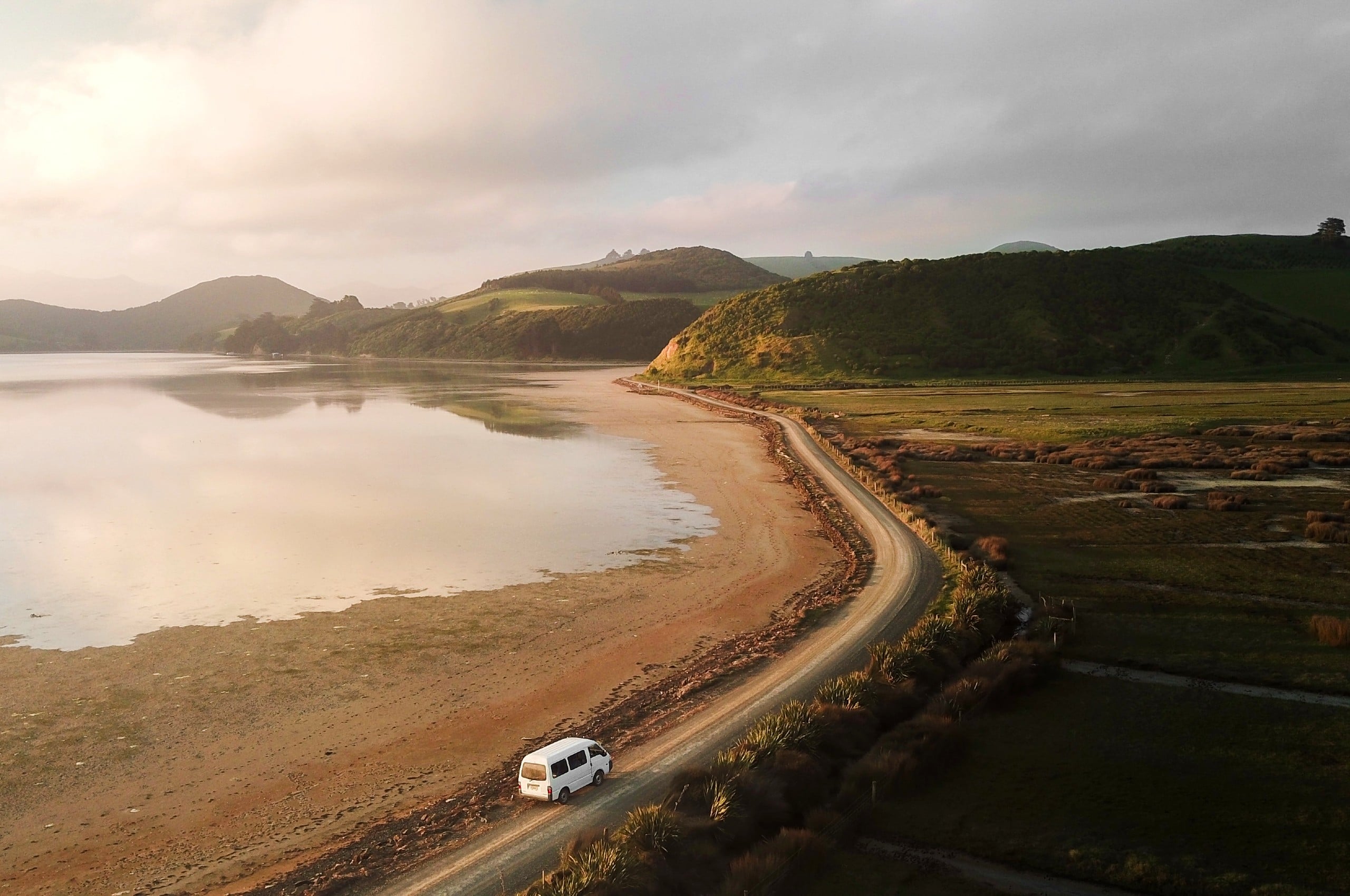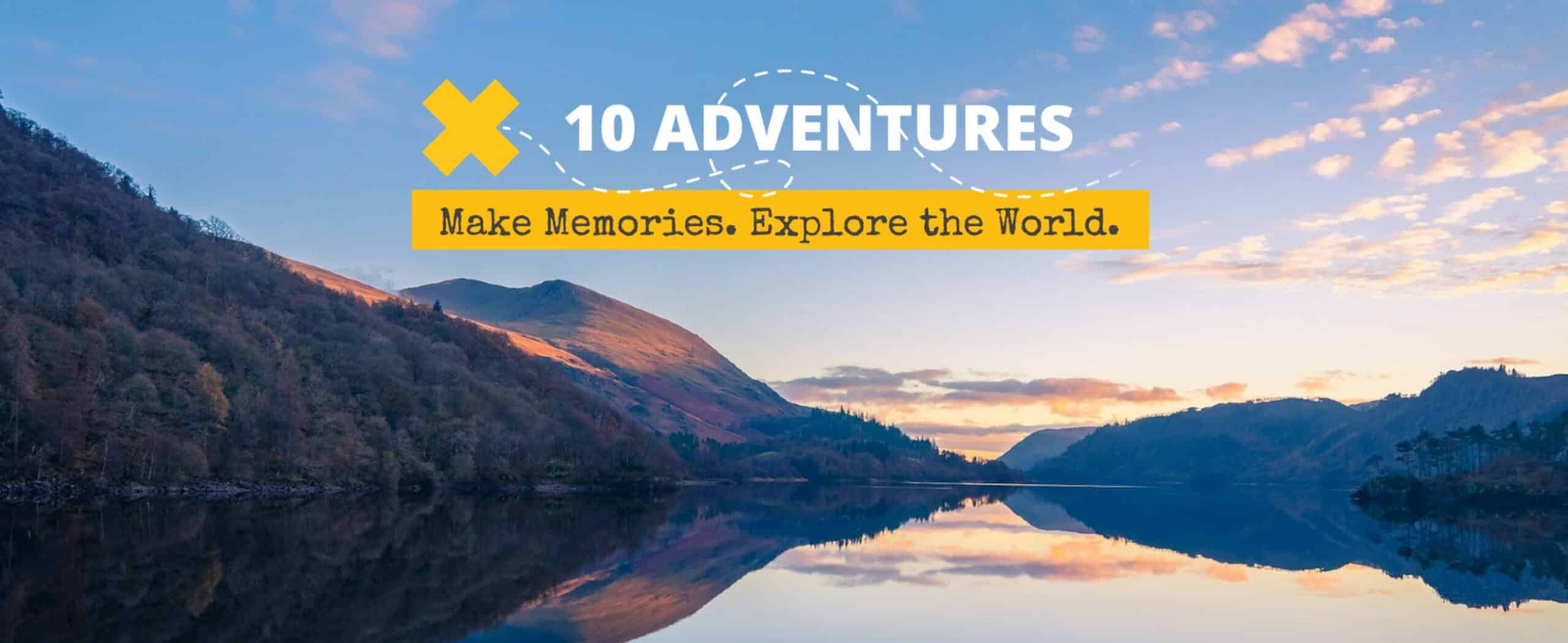Much more than with any other type of travel, van life forces you to change the way you think about exploring, with the result being an adherence to several different mindsets that had previously been unfamiliar to you. The ideals of minimalism and the thought process of becoming a conscious consumer will begin to permeate every facet of your life, and the ensuing sense of total freedom will open up a world of possibilities that you never even imagined. Whether you are planning to hit the road part-time for a 3-month adventure or are looking to permanently get off the grid, there is no better feeling than hitting the open road and leaving the monotony of everyday living behind for a while.
At first glance, living out of a van seems kind of… insane. The image of a tiny minivan on its last leg with a mattress thrown in the back and some crudely fashioned drawers or cabinets isn’t exactly a vision of comfort. But while this is the route that many budget conscious travelers take – it certainly was for me traveling through New Zealand – there are plenty of modern, well thought out designs that blend comfort and functionality.
Enter a company like Yama Vans, whose converted sprinter vans are designed with thoughtfulness, experience, and close consultation with clients to provide all of the features that you need for a comfortable life on the road with none of the useless features that will ultimately weigh you down. Read on to learn more about this new, smaller style of vehicle that is helping to drive the increasing popularity of van life.

Freedom of Mobility
Back in the 70s, 80s, and 90s the RV was king, and the concept was pretty simple. Pack up the family, dog, luggage, and any creature comforts you could safely bring into your giant boat on wheels and hit the road for a fun family adventure. And while that thought might be nostalgia – or nightmare – inducing for many, I think we can all agree that it likely wasn’t the most efficient way to travel.
Sure, an RV can certainly get you from point A to point B while allowing you to stop along the way, but everyone has memories of a frustrated dad swearing and sweating profusely through their Tommy Bahama shirt while looking for a parking space in town… not much fun for anyone. Whether you are traveling in a group, with your partner, or are hitting the road solo, a smaller van build allows for a higher degree of mobility that will make your life easier in every conceivable way.
In addition to being easier to drive and having better gas mileage, smaller van builds also bring with them a pack up and go mentality. Ready to hop from one campsite to another or escape the cold winters to a warmer state? No problem. Simply take off the parking brake and drive towards the sunset. This level of freedom and mobility is nearly unmatched if you are considering a cross-country road trip or are living full-time in your van, providing a clear upgrade over the big RVs and trailers of decades past.
Minimalist Mindset
In a similar fashion to outdoor activities like backpacking and cycle touring, living or traveling in a van breeds a minimalist attitude. The increased mobility mentioned above means that you won’t want to be weighed down by too much “stuff”, which provides a pleasant contrast to the reality of everyday living in a society that generally values materialistic thinking.
And for those who think they can pack up all of their belongings and resist the freeing feeling of not carrying everything you own with you, think again. The physical constraints of the smaller space will naturally require you to pack light, making it much easier than you think to leave behind your high-tech espresso machine and collection of 37 favourite mugs.
The result is both a minimalistic and utilitarian experience, where you have everything you need, nothing you don’t, and a whole lot of extra time to connect with the places you visit and people you experience them with.

Conscious Consumption
An added benefit to designing and building your own custom van rig is the attention that you can give towards sustainability and conservation. During the planning and construction phase of a smaller van build, you will likely work closely with a builder who can help choose durable, sustainable materials that are both better for the environment and provide a high quality finish; after all, you will be spending a fair amount of time in your van, so you will want it to be built to last.
When it comes to actually living or traveling out of your van, you will notice your mindset shift from one of unintended wastefulness to conscious consumption. While on the road, you won’t have access to endless amounts of power, water, and fuel, so naturally you will need to be more mindful about your levels of consumption.
Anyone who has ever been on a multi-day backpacking trip knows the feeling of despair when your battery runs low and you run the risk of losing access to your GPS or maps. Now imagine that on a grander scale when your home on wheels has no water or power and you’re 50km from the sanctuary of the closest Walmart parking lot… I think the ensuing chaos would be enough to make anyone become more cautious of their consumption.
Planning A Van Life Adventure
Are you in the beginning stages of planning your own epic van life adventure? Whether you are looking to construct something yourself, buy used, or work with a builder to design the perfect rig, there are plenty of resources available online to help get you started.
For those who are looking to take the latter approach or simply want to get some van life inspo, be sure to check out episode 78 of the 10Adventures Podcast, where Alex Welsh and Pat Burns of @Yama Vans discuss their process, and the ultimate sense of freedom that comes with living or traveling in a converted sprinter van.



Comments